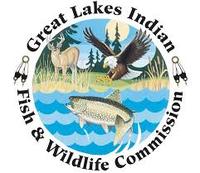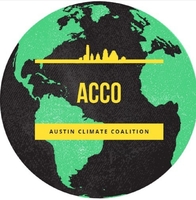Search
8 items
-
Podcast: Young Minds Big Questions – An Interview with Brian McLaren
“Climate Change and Christianity – An Interview with Brian McLaren” was released on April 26, 2017, and is the first part of a two part conversation on climate change and Christianity. The interviewee, Brian McLaren is an author, speaker, activist, and public theologian. His work as a pastor led him to begin writing, and he has published numerous books on faith and Christian life.
McLaren unpacks some of the science behind global climate change and its everyday effects for human life around the world. Looking at the dangers of a changing climate, he turns to faith as the inspiration for advocacy and change. Ultimately, McLaren attributes reluctance to accept or take action to prevent climate change, in part, to a certain kind of eschatology. He then mentions instances in which congregations, inspired by care for God’s world, made real changes to combat climate change. The podcast concludes with McLaren’s own recommendations for any Christian wanting to learn more about creation care. -
Solar
The Presbyterian Church has put forth the following webinar, providing some suggestions for both individuals and congregations to utilize cleaner sources of energy and reduce costs. The introduction is to the webinar is shown below:
"As the realities of climate change present an ever increasing urgency to our need to act faithfully in our energy consumption, many Presbyterians are exploring ways to support, purchase, and share renewable energy resources as an alternative to fossil fuel energy. From Presbyterian congregations drawing interest from the passers-by that notice solar panels on their rooftops, to a Presbyterian teen purchasing solar panels to charge his electric lawnmower (part of his carbon-neutral lawn-care service), the time is ripe to explore the options of solar energy as part of our Christian discipleship." -
Climate Change
The Presbyterian Church has put forth this video on care for creation, emphasizing that Christ has called us to go out into the world to care for creation and our fellow humans, especially the poor. The Union of Concerned Scientists has identified food, transportation, and energy as three key areas of focus to help stem climate change Congregations can help by implementing energy saving techniques, participate in recycling and composting waste, teaching children to grow food, and incorporating salient creation care concepts within educational settings. -
Saving Buffalo Reef
This 11-minute video, by the Great Lakes Indian Fish & Wildlife Commission (GLIFWC), informs the viewer of the natural, cultural, and economic importance of Buffalo Reef. This reef is located off the Keweenaw Peninsula, Michigan, in Lake Superior. Buffalo Reef is currently under ecological distress due to local mining activities. Current Tribal, State, Federal, and Academic efforts are underway to help restore this significant environmental feature, as documented in this video. -
Dalai Lama's Message to World Leaders
Before COP-21, the Dalai Lama recorded a message for all people to see, addressing the world leaders who were going to meet in Paris. In his message, he urged people to take responsibility for what we have done to the planet and start to live more sustainably. He also noted that Tibet is effected much more drastically by climate change than other regions of the world. Tibet has long been considered the rooftop of the earth, and is much more susceptible to environmental degradation. -
Caring for Creation Today
This video, put forth by the Evangelical Church in America, encourages individuals to act as stewards by both assisting those in need and caring for our land, as God had intended. The salient message is to do what you can to work for change and care for God's creation, as this is our duty as humans. -
Existentialism an the Ecological Crisis
This segment of The Philosopher's Zone with David Routledge (on the Australian Broadcasting Corporation) focuses on the importance of existentialism in modern times. Specifically, how existentialism can help us understand current relationships between the self and others, as well as with nature. Likewise, the podcast’s contributor, Dr Dalia Nassar points out that existentialism implies a sort humanism (as Sartre argued) that connects each individual to all of humanity through their actions. It is the fact that each of our actions can affect one another is why the existentialists place so much emphasis on how we act. Furthermore, the podcast extends this to the ecological crisis by explaining how this radical humanism can inform how we make environmental decisions. The important point here is that we can derive environmental values based on the inherent freedom that humans have, there is a constant need for action. As the interviewer explains in the podcast, the individual determines the moral future of humanity and nature. Thus, each person has a moral obligation to transcend the current situation and make better choices for the environment. Likewise, there is a special attention to art and literature as a mode of connection, to hopefully shape others moral and environmental values. Therefore, existentialism provides a framework (much like religion) for guiding our actions based on a mutual care for the environment. Finally, I should note that the key points of the podcast (concerning the environment) starts at the 18-minute mark, while the latter half provides background knowledge on existentialism. -
One World, Our Coalition: Religion and Environmentalism Larry Linenschmidt
The One World, One Coalition interview guest of various backgrounds about climate advocacy. In the first episode Matthew Kim and Isla Ferguson interview Larry Linenshcmidt of Hill Country Institute. Hill Country Institute is a Christian organization focused on addressing important issues while encouraging safe discussions on topics like human rights, education, and the environment. As the executive direction Linenschmidt lectures about holistic environmental stewardship in the Christian community.








